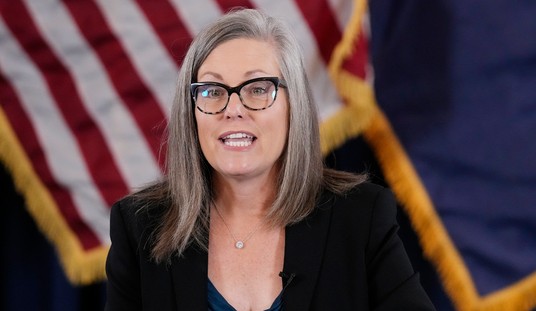The vast majority of county sheriffs in New Mexico have been quite vocal in their opposition to the state’s new “Universal Background Check” law, and for good reason. Law enforcement officers like Cibola County Sheriff Tony Mace have questioned how they can even enforce the law, given the fact that there’s no registry of who owns what firearm in the state. If a private transfer takes place, how are police supposed to know about it?
Well, one county sheriff is bucking the trend of opposition, though she doesn’t seem that clear on how she’ll enforce the law. Dona Ana County Sheriff Kim Stewart told KOB News in Albuquerque that she believes the law will lead to less violence, though she didn’t (or couldn’t) explain how that would happen.
“It’s a tool. Maybe we can begin to really get a handle on what the guns – how many guns are out there – and how many guns are trading hands that we don’t know about,” Stewart said.
How exactly is the law going to help you do that, Sheriff? As I mentioned before, there’s no gun registry in the state of New Mexico, so unless the sheriff believes this new law will serve as a de facto registry, there’s no way it’s going to lead to anybody knowing “how many guns are out there”.
The sheriff also says that the law will help police learn “how many guns are trading hands that we don’t know about”. This law does nothing to actually accomplish that, because police still aren’t going to know about private transfers of firearms that didn’t go through an FFL and a NICS check. How could they?
Sheriff Stewart also pooh-poohed the idea that universal background checks could lead to more gun control laws, including confiscation down the road.
“This fear that, ‘Oh my gosh, this means the world is caving in and our guns are gone,’ we’ve been doing it legally, per the law, for years and I haven’t noticed that having a large impact,” Stewart said.
Performing a background check at the original point of sale is quite a bit different than trying to police every private transfer of a firearm. In fact, it’s the universal background laws themselves that don’t have a large impact. Studies by anti-gun researchers found that after laws similar to New Mexico’s were put on the books in Washington State and Colorado, the number of background checks didn’t increase. The anti-gun researchers say it’s because of “non-compliance”. I think it’s more about the unenforceable nature of the laws.
Sheriff Stewart also complained about other county sheriffs in the state, who’ve said they won’t attempt to enforce the law, telling KOB, “When they say, ‘We’re not going to enforce that,’ well, to me, that’s picking and choosing what you want to do.”
Law enforcement has discretion about enforcing any particular law at any particular time. Are deputies in Dona Ana County not allowed to issue warnings instead of speeding tickets? Must they arrest every shoplifter, even if it’s a mother desperate to feed her children? Cops and prosecutors around the country use their own discretion on a daily basis. In fact, I’d bet that even Sheriff Stewart has shown discretion at least once in her law enforcement career.
I’ve reached out to the sheriff with a couple of questions of my own that weren’t asked by the reporter for KOB. If and when we get a response, we’ll share it with you here at BA.








Join the conversation as a VIP Member